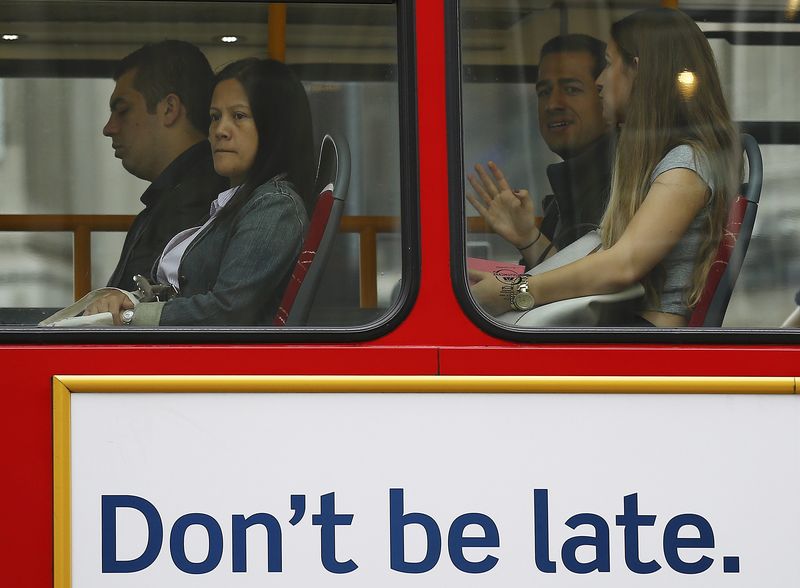By William James and Kylie MacLellan
LONDON (Reuters) - Millions of Londoners struggled to work on Thursday as a strike brought the Underground rail network to a standstill for the second time in a month over plans for a new all-night service.
Commuters turned to cars, boats, bicycles and heaving buses to cope with the 24-hour walkout by rail unions. No trains were running on the network, which usually handles some four million journeys a day.
"When you get into the central stations, it's carnage," said James Isaacs, who works for a private bank and was struggling with two large bags in the City of London financial district. "It's hot, it's sweaty and someone's going to lose their temper soon."
Transport for London (TfL) said it was laying on an extra 250 buses to help commuters get about the city. But massive queues developed at bus stops and taxi ranks, and many commuters said their journeys had taken far longer than usual.
The action follows a long dispute over the plans for some 24-hour services at weekends on the "Tube", as the world's oldest underground passenger railway is known. The services are due to begin on Sept. 12.
Nick Brown, the managing director of London Underground, said it had offered unions an above-inflation 2 percent pay rise, a one-off payment of 500 pounds and a promise that drivers would have the same number of weekends off. Annual leave would remain the same - 43 days for a train driver and 52 days for station staff.
"We listened to their concerns over work-life balance and put forward an extremely fair, revised offer," Brown said.
All four unions taking part in the strike said they supported night services but said the plans would destroy their members' work/life balance.
"Our dispute is not with the travelling public - it is with those who have botched the introduction of Night Tube and who are trying to plug staffing gaps by wrecking any chance of a decent work/life balance for our members," said RMT General Secretary Mick Cash said.
However, many of those who had to find alternative ways to get to work were unimpressed.
"I left home an hour earlier than normal," said Marie Kelly, 27, who was walking to her job in a central London restaurant.

"They get way more holiday than me. They should just get on with it. It is annoying, it's disruptive. They are not doing much to help themselves."